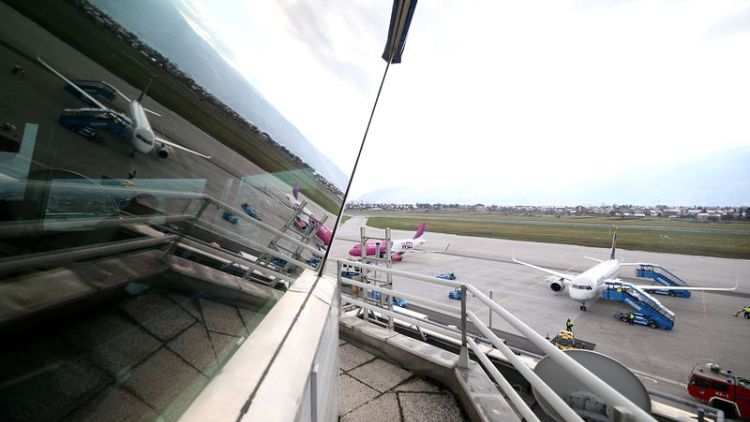By Daria Sito-Sucic
SARAJEVO (Reuters) - Bosnia will take full control of its air space from Thursday for the first time ever after its 1990s war of independence led to a period of oversight by international peace forces.
Control over its air space was maintained by NATO-led peace forces from 1995 until 2003 when it was transferred to neighbouring Serbia and Croatia while Bosnia built up and modernised its own system.
"This is the first time ever that Bosnia takes control of its air space and it is an enormous success, bearing in mind that (neighbouring) Montenegro, a NATO member, does not control its own skies," Davorin Primorac, head of Bosnia's Air Navigation Services Agency (BHANSA), said on Wednesday.
Bosnia took control of air space below 10,000 metres (33,000 feet) in 2014 following a 10-year project to establish its own air navigation management system and after the training of some 400 staff. Serbia and Croatia retained control above 10,000 metres just as they were doing when all three countries were republics in the old Yugoslav federation.
Primorac said it had taken decades for Bosnia to take over its air space because its 1992-95 war, prompted by its secession from Yugoslavia, had devastated major infrastructure and equipment and left it short of skilled workers.
It took considerable time to train flight controllers, rebuild infrastructure and obtain necessary equipment, including radar systems, he said, adding that BHANSA intended to further upgrade its capacities.
Primorac said Bosnian flight controllers will oversee up to 1,600 flights on a busy day, eight times more than previously.
After taking over its air control service from Croatia and Serbia, BHANSA's budget would rise to 72.5 million Bosnian marka ($41 million) in 2020 from 60 million marka this year, he added.
(Reporting by Daria Sito-Sucic; Editing by Mark Heinrich)
